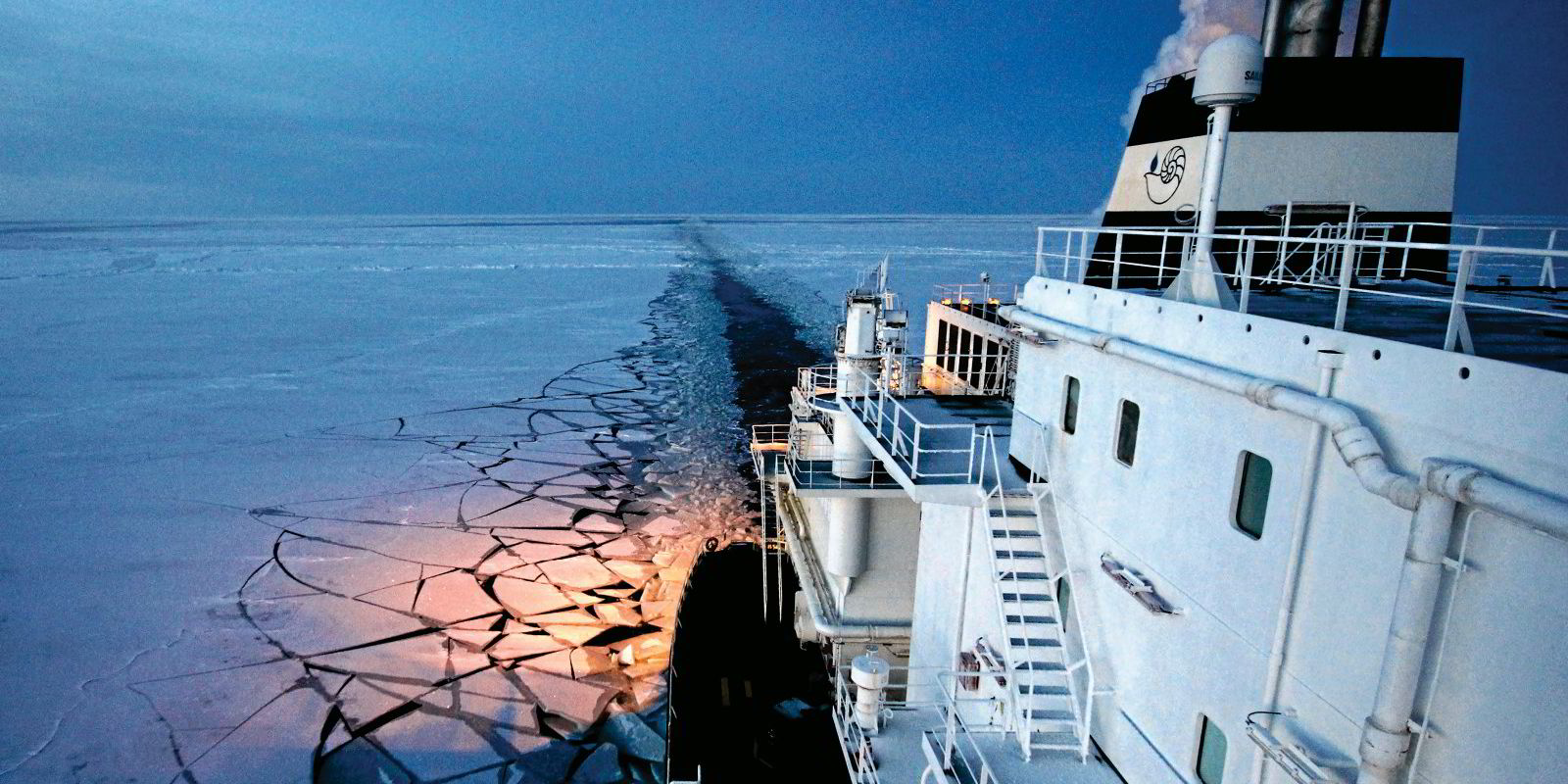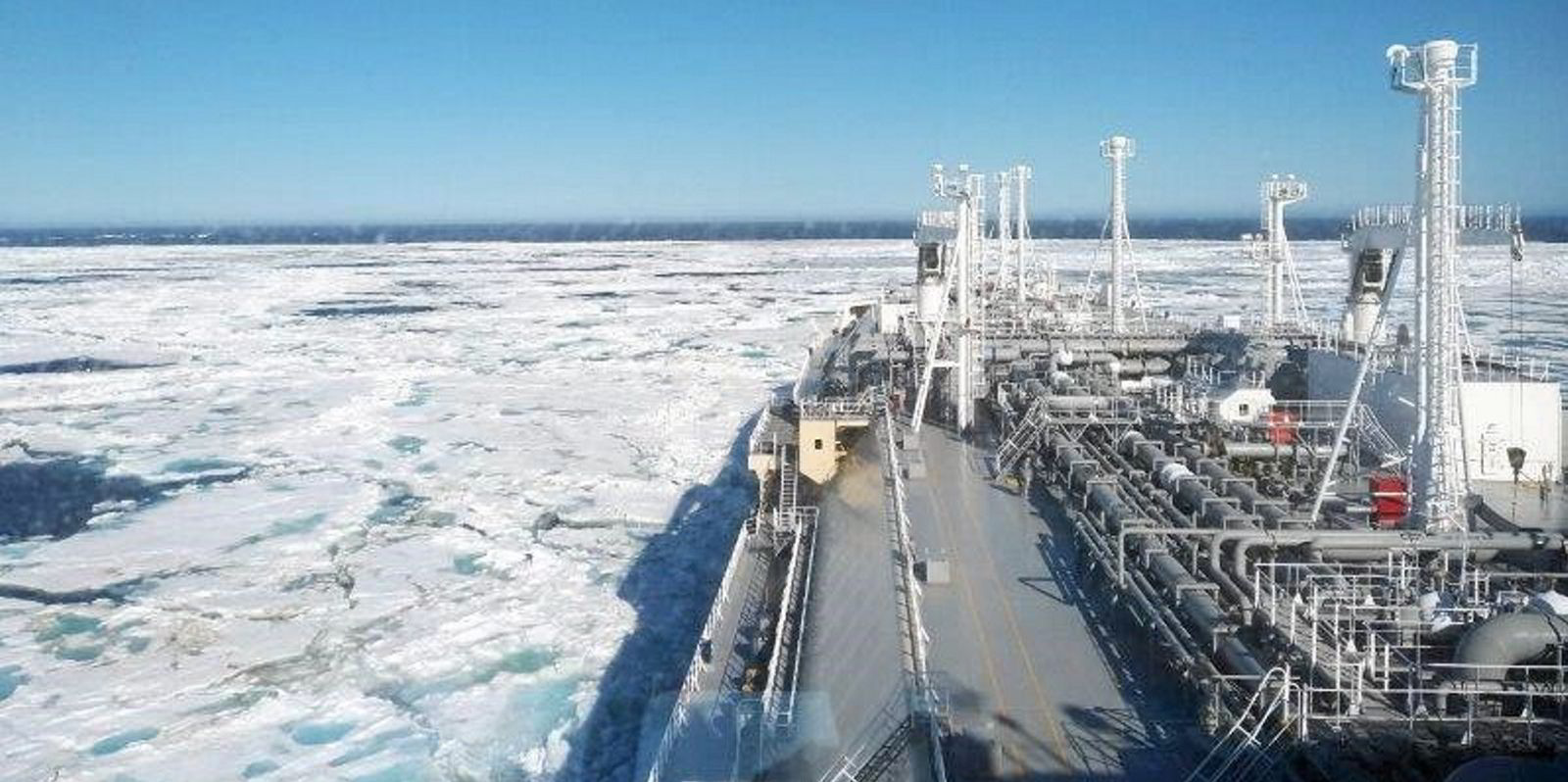Russian is plotting a much heavier use of the Northern Sea Route (NSR) in the Arctic for crude exports on tankers.
Interfax reported that the sanctions-hit country is set to cooperate with India to get more shipments through the ice.
This could include the building of new processing facilities.
Alexei Chekunkov, Russia’s minister for the development of the Far East and the Arctic, is visiting India.
A key issue in his talks with Indian officials was the “reliable and safe” transport of goods through the NSR using Russian and Indian ports, Interfax said.
“It was especially noted that the cost of delivering a container from Vladivostok [in far eastern Russia] to India is a third lower than the cost of shipping a container from Moscow,” the news agency quoted Chekunkov as saying.
But India, which has not explicitly condemned Russia's invasion of Ukraine, is also now the second-largest importer of Russian oil after China.
Rosatom, the nuclear agency that controls Russia’s nuclear icebreakers, believes there is significant potential for tanker trips along the NSR.
Talks with oil companies are already taking place.
Rosatom representative Sergei Chemko told a meeting of Russia’s Federation Council this week that he believes crude from Lukoil’s Varandey terminal and Gazprom Neft’s Prirazlomnoye project in north-west Russia could be sent through the Arctic, according to Interfax.
Conventional tankers needed
In summer and autumn, ice-class tankers are not needed, he argued.
“Unfortunately, we do not yet have large-size tankers with ice-class and therefore we offer our colleagues use of ordinary tankers with a guaranteed level of security, with escort of our icebreakers in the summer/fall season,” Chemko said.
In 2020, production at Gazprom Neft’s Novy Port project in north-west Russia increased 5% to 14.89m tonnes and Prirazlomnoye delivered 3.27m tonnes. Varandey ships out 6m tonnes.
The Barents Observer reported that last October, Sovcomflot’s 72,700-dwt shuttle tanker Vasily Dinkov (built 2008) carried out a voyage to Rizhao in China.
In 2023, shipments on the route are projected to reach 33m tonnes.
Sea ice is shrinking in the Arctic due to global warming.





